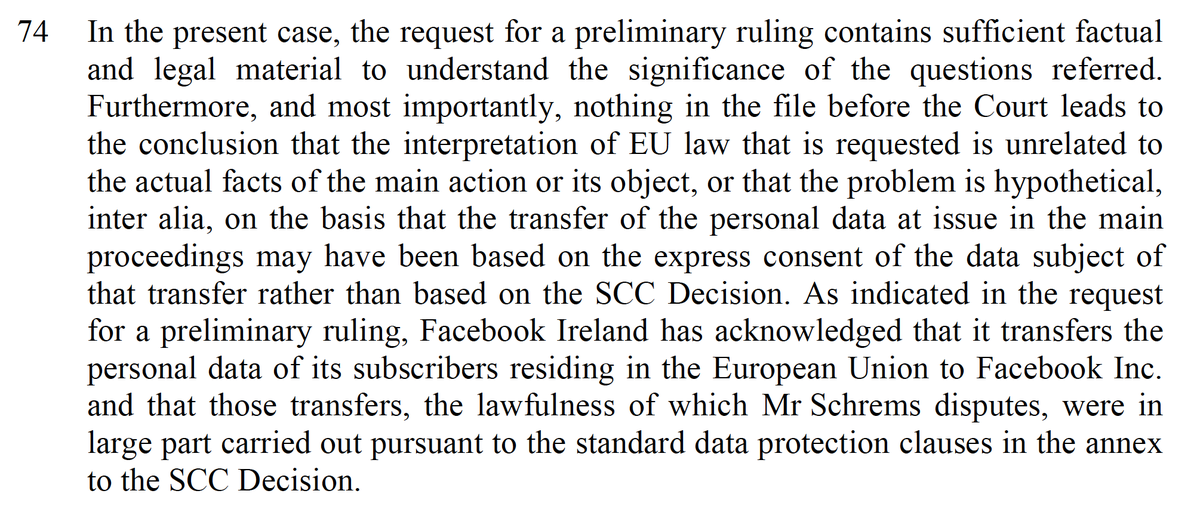Will companies simply turn to consent as the basis for cross-border data transfer? #SchremsII 1/
German government had suggested that the CJEU shouldn't hear the case because Max Schrems had possibly consented to data transfer to US. #SchremsII 2/ 

CJEU responded Facebook didn't rely on consent, but rather SCCs, for data transfer. I'm sure Facebook meant that it thought either basis was sufficient--but lack of clarity on this doomed this argument. 3/ 

Facebook didn't want to hang its hat on consent, because consent is very tricky. 4/
Article 49 (1) of the GDPR permits transfer “the data subject has explicitly consented to the proposed transfer, after having been informed of the possible risks of such transfers for the data subject due to the absence of an adequacy decision and appropriate safeguards." 5/5
@t_streinz has very important insights on the possibility of consent as a basis for data transfer -- see this string beginning here
https://twitter.com/t_streinz/status/1283894108667424768?s=20
• • •
Missing some Tweet in this thread? You can try to
force a refresh





